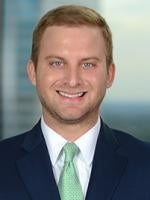This week, the United States Supreme Court heard oral arguments in Universal Health Services v. United States ex rel. Escobar, a case destined to influence the scope of False Claims Act (FCA) liability for anyone who receives payments from Medicare, Medicaid or any other federal government-funded health care program. As Justice Breyer acknowledged during oral argument, “billions of dollars” are “at issue.”
During oral argument, the Justices seemed likely to accept the implied certification theory of liability under the FCA, at least in some form. The decision is likely by the end of June. Watch this space for details and analysis of its precise contours. Below are more details about the case.
Escobar concerns “implied certification” liability — a theory that requires a provider to comply with underlying statutory, regulatory or contractual obligations associated with a service even though those obligations are not specified when the service is provided. If the provider fails to comply with those obligations but submits a claim for payment, it has breached the implicit promise, thus potentially giving rise to liability under the FCA.
Universal Health and others want the theory abolished, while relator Escobar wants it upheld. The Justices appeared to ponder—in the words of counsel for Universal Health Services—the “jot” from the “tittle” on how to distinguish underlying obligations that are sufficiently important to implicate the FCA from those that are not. Although both sides and the United States Solicitor General’s office (participating as an amicus in support of Escobar) posited several principles upon which to resolve the case, none seemed to elicit a consensus among the Court’s eight members.
The FCA is a Civil War-era law designed to protect government coffers by prohibiting individuals from “knowingly” submitting (or causing the submission of) a “false or fraudulent claim” for payment. In order to further protect the government’s coffers, the FCA authorizes private plaintiffs (known as “relators”) to bring suit on the government’s behalf and share in its recovery.





 />i
/>i

